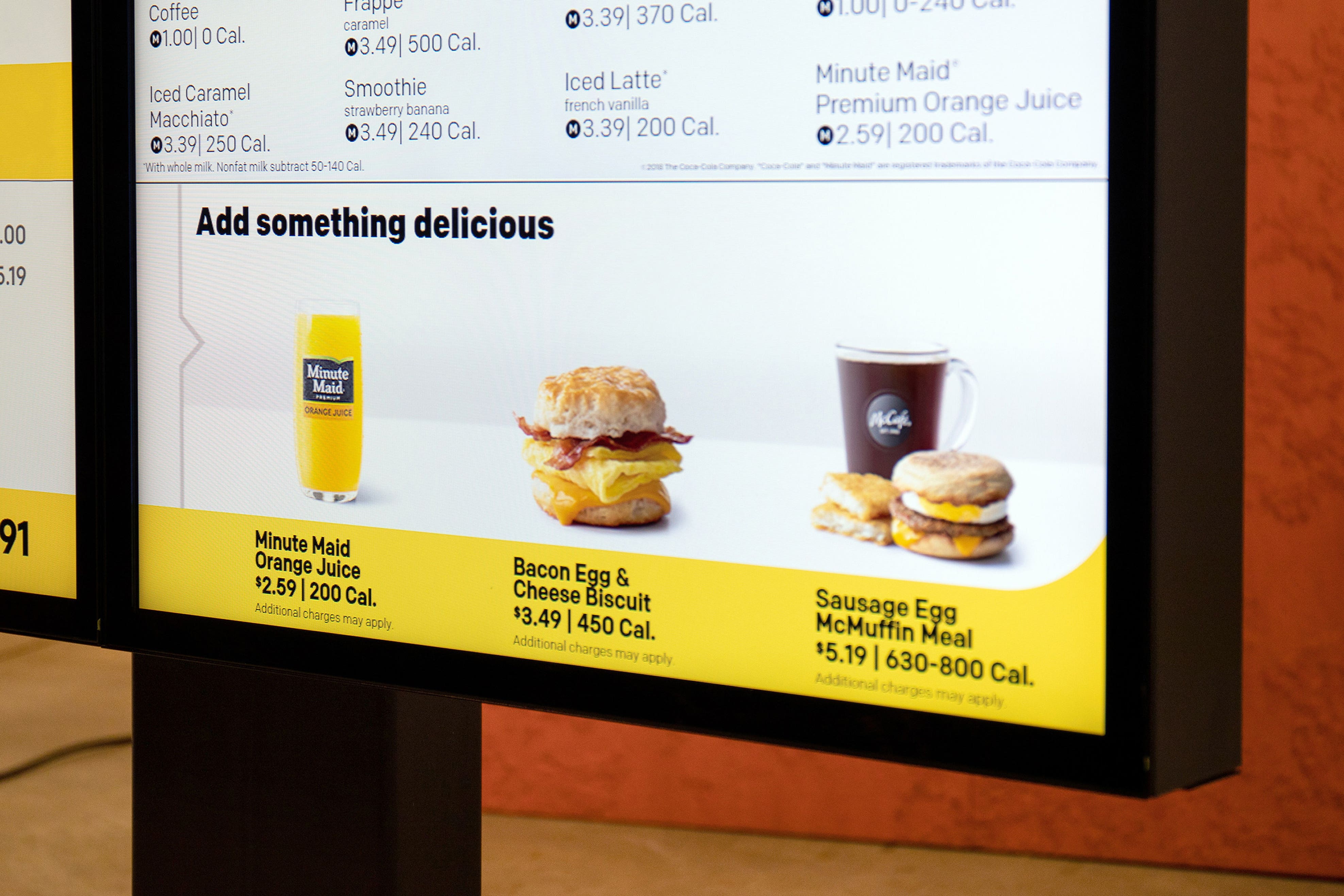Calls to end ‘harmful’ calorie labels on restaurant menus
The move was originally made to tackle the country’s obesity crisis

Your support helps us to tell the story
From reproductive rights to climate change to Big Tech, The Independent is on the ground when the story is developing. Whether it's investigating the financials of Elon Musk's pro-Trump PAC or producing our latest documentary, 'The A Word', which shines a light on the American women fighting for reproductive rights, we know how important it is to parse out the facts from the messaging.
At such a critical moment in US history, we need reporters on the ground. Your donation allows us to keep sending journalists to speak to both sides of the story.
The Independent is trusted by Americans across the entire political spectrum. And unlike many other quality news outlets, we choose not to lock Americans out of our reporting and analysis with paywalls. We believe quality journalism should be available to everyone, paid for by those who can afford it.
Your support makes all the difference.Calls have been made to end calorie-labelled menus in restaurants after being described as ‘damaging’ for people with eating disorders.
Evidence collected as part of a review found people with eating disorders change their behaviour when presented with calorie-labelled menus and opt for lower calorie dishes.
Putting calories on menus in restaurants, takeaways and cafes with more than 250 staff came into force in England in 2022 in a bid to tackle obesity levels.
Academics have called for more research into whether calorie labels are viewed positively or negatively, and if they could potentially reinforce eating disorders.
It follows a separate review, published earlier this month, which showed calorie labels in supermarkets, restaurants and other food outlets has a “small but potentially meaningful effect” on food choices.
For the review, published in BMJ Public Health, researchers looked at 16 studies from the UK, US, Canada and Saudi Arabia which included a total of 8,074 people.
While most experimental studies “showed no differences between menus with or without calories on disordered eating or body image concerns”, researchers said people with current eating disorders “changed their behaviours if presented menus with calorie labels”.
They added: “Thus, behavioural changes and impacts on eating pathology may not be observed in the general population and appear to be specific to those with eating disorders.
“Findings from cross-sectional studies support this, whereby eating pathology was positively associated with noticing calorie labels and changing behaviour to select lower calorie options.”
The review found evidence that suggests there is a “cause for concern regarding negative impacts, particularly for those with restrictive eating disorders” and called for further research.

It highlights that “few studies focused specifically on individuals with eating disorders and no broader impacts on mental health were examined”, with more needed to understand whether calorie labels are viewed positively or negatively, and whether they could potentially reinforce or perpetuate eating disorders.
Co-author Dr Nora Trompeter, a research fellow at University College London, said the study “provides an important addition to the evidence base around calorie labels”.
“Typically, there is a lot of focus on whether policies are effective in reducing obesity but it is also critical to investigate whether these policies inadvertently harm people with eating disorders,” she added.
“Our review also shows that more research is needed to fully understand the impact of calorie labels on individuals with eating disorders. For example, none of the studies included young people.”
Senior author Dr Tom Jewell, a lecturer in mental health nursing at King’s College London, said: “Our study highlights that people with lived experience of eating disorders are frustrated at being left out of the conversation around calorie labels.
“Striking a balance between the positive and harmful impacts of calorie labels on menus is vital in any public health policies.
“Policymakers should consider the impact on both obesity and eating disorders when making decisions about nutrition labelling.”
Reacting to the study, Tom Quinn, director of external affairs at eating disorder charity Beat, said: “This vital research adds to a growing bank of evidence: calorie labelling on menus doesn’t help anyone.
“People with eating disorders are harmed, and the general population see such a negligible benefit that it can’t be justified as an effective health policy.
“For those with eating disorders, calorie labelling can worsen feelings of anxiety and stress and lead to harmful behaviours such as binge eating, exercising excessively or restricting food.
“Going out for meals is also an integral part of eating disorder recovery and having calories on display can make this much more challenging and keep people unwell for longer.
“We hope that the Government now takes this into account and chooses to prioritise the 1.25 million people affected by these serious mental illnesses, rather than continuing with a so-called health measure that simply doesn’t work.”

A Department of Health and Social Care spokesperson said: “This Government is committed to tackling the obesity crisis head on, shifting our focus from treatment to prevention as part of our 10 Year Health Plan.
“We will continue to evaluate the impact of out-of-home calorie labelling on people with eating disorders and overhaul the NHS to ensure those living with eating disorders are given the support they need.
“This includes delivering talking therapies to an extra 380,000 patients, recruiting an extra 8,500 adult and child mental health staff and providing access to mental health support in every school.”